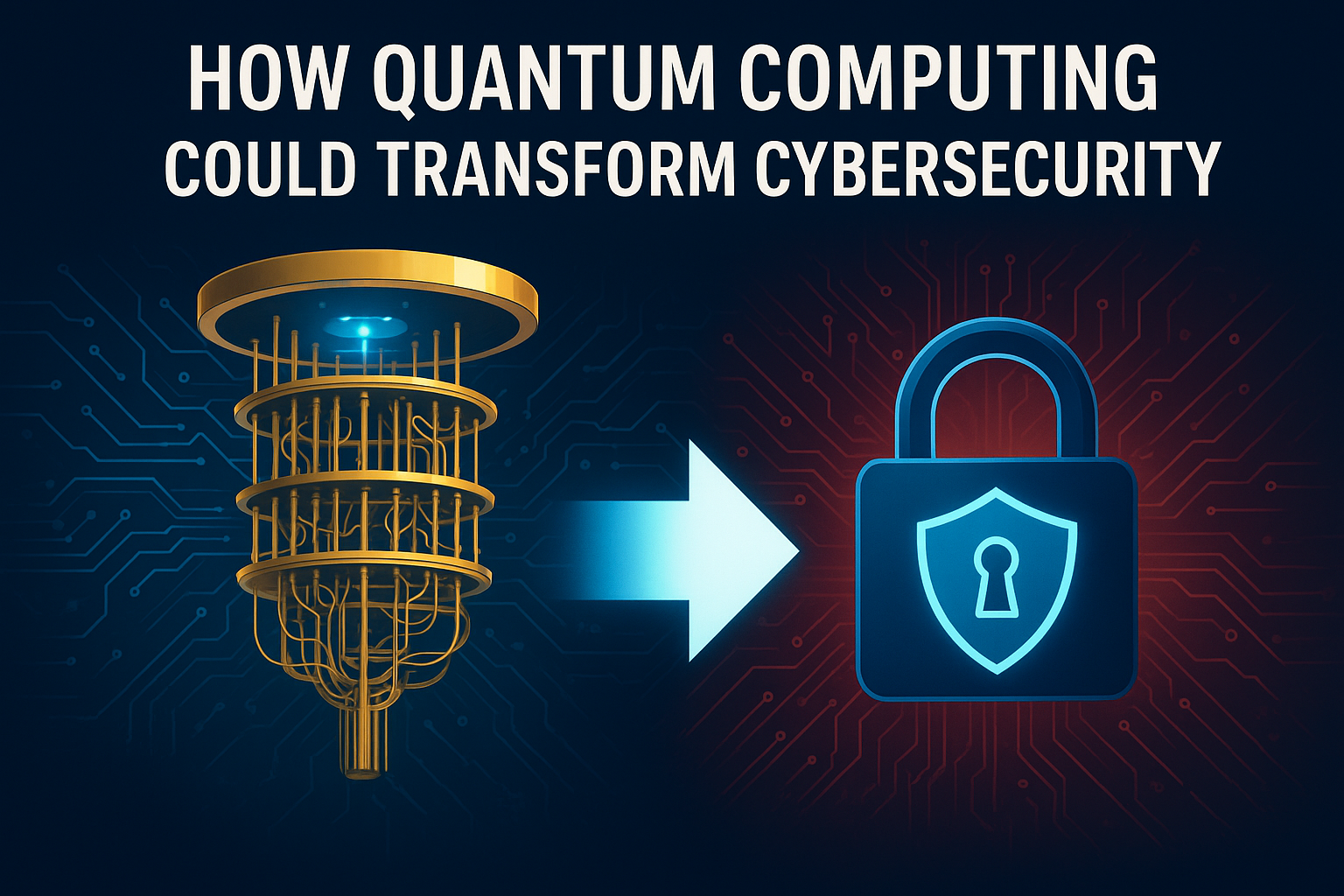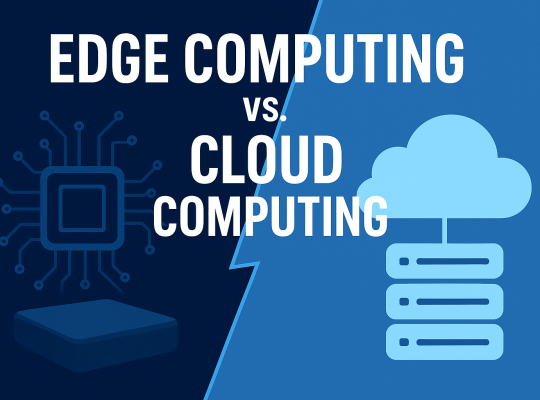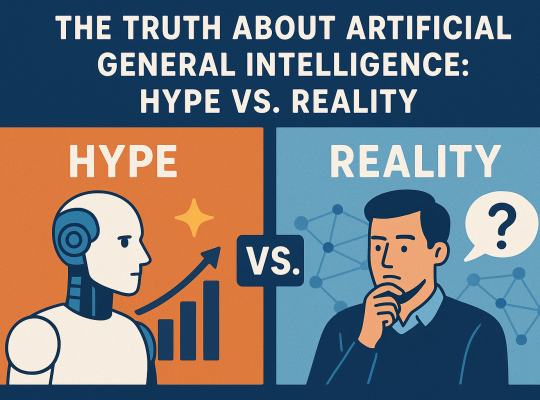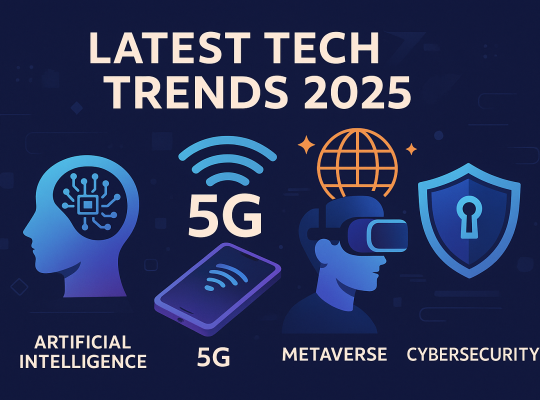In a world where cyber threats are evolving at an unprecedented pace, the emergence of quantum computing stands to redefine the landscape of cybersecurity. Picture a realm where your sensitive data can be safeguarded with unbreakable encryption, outsmarting even the most sophisticated cybercriminals. As traditional computing approaches its limits, quantum technology promises not just speed but an entirely new dimension of security protocols. This article delves into the revolutionary potential of quantum computing in reshaping how we approach cybersecurity, exploring its unique capabilities that could render conventional security measures obsolete. From enhancing data privacy to fortifying network defenses, the possibilities are limitless. Join us as we unlock the future of digital protection, illuminating the groundbreaking advances that will empower organizations and individuals alike to navigate a safer cyber world. Embrace the change and discover how quantum computing will not only protect our information but revolutionize the very fabric of our online existence.
The Current State of Cybersecurity
Today’s cybersecurity landscape faces constant threats from hackers, malware, and ransomware attacks. Organizations rely on encryption standards like RSA and AES to protect sensitive data, but as computational power increases, these traditional methods are becoming more vulnerable. Cybersecurity experts recognize the need for a paradigm shift—one that quantum computing is uniquely positioned to provide. With billions of devices online and data generation at an all-time high, conventional security measures may soon be inadequate for safeguarding critical information.
How Quantum Computing Works
Quantum computing leverages the principles of quantum mechanics, such as superposition and entanglement, to process information at speeds unimaginable for classical computers. Unlike traditional bits that exist as 0 or 1, quantum bits (qubits) can exist in multiple states simultaneously, enabling highly parallel computations. This capability allows quantum computers to solve complex problems—such as factorizing large numbers or modeling intricate systems—far faster than classical machines. In cybersecurity, this computational power can both threaten existing encryption methods and create new opportunities for secure data processing.
The Threats Quantum Computing Poses to Traditional Cryptography
While quantum computing offers immense promise, it also presents serious risks. Current encryption algorithms, including RSA and ECC, rely on mathematical problems that classical computers cannot solve efficiently. Quantum computers, however, could break these cryptographic methods, rendering conventional digital security obsolete. This looming threat has prompted researchers to explore quantum-resistant encryption to prevent sensitive data from being compromised once quantum computers become widely available.
Quantum-Resistant Cryptographic Solutions
To counter the risks posed by quantum computing, experts are developing post-quantum cryptography (PQC) solutions. These algorithms are designed to withstand attacks from both classical and quantum computers. Examples include lattice-based encryption, hash-based signatures, and multivariate polynomial cryptography. By implementing quantum-resistant protocols now, organizations can future-proof their data security and ensure long-term protection against evolving cyber threats.
The Role of Quantum Key Distribution in Cybersecurity
Quantum Key Distribution (QKD) is a breakthrough technology that leverages the principles of quantum mechanics to enable unhackable communication. QKD allows two parties to share encryption keys with absolute security, as any attempt to intercept the key alters its quantum state, immediately revealing the intrusion. By incorporating QKD into cybersecurity frameworks, organizations can achieve a level of data privacy unattainable with traditional cryptographic methods.
Case Studies: Quantum Computing in Action for Cybersecurity
Several organizations and governments are already experimenting with quantum technologies to enhance cybersecurity:
-
Financial institutions are using quantum simulations to detect fraudulent transactions and optimize risk assessment.
-
Tech giants are investing in quantum algorithms for secure cloud computing, ensuring end-to-end data protection.
-
Defense agencies are exploring quantum encryption to safeguard sensitive communications against cyber espionage.
These early applications demonstrate the transformative potential of quantum computing in real-world cybersecurity scenarios.
Future Trends in Quantum Computing and Cybersecurity
The intersection of quantum computing and cybersecurity is poised to reshape the digital landscape. Future trends include:
-
Widespread adoption of quantum-resistant encryption protocols
-
Integration of QKD networks for secure communications
-
Development of hybrid classical-quantum security systems
-
Advances in AI-driven quantum cybersecurity solutions
Organizations that adapt early will gain a competitive edge in cyber defense, ensuring their data remains secure in a quantum-powered world.
Preparing for a Quantum Future: Strategies for Organizations
To stay ahead of quantum-driven threats, organizations should:
-
Conduct a quantum readiness assessment
-
Invest in quantum-safe encryption tools
-
Implement multi-layered cybersecurity strategies
-
Train IT staff on quantum cybersecurity best practices
-
Collaborate with quantum technology providers for early adoption
Proactive preparation will minimize risk and allow businesses to leverage quantum computing’s advantages safely.
Conclusion: Embracing Change in Cybersecurity Practices
Quantum computing represents both a challenge and an opportunity for the cybersecurity industry. While traditional encryption methods may become vulnerable, quantum technologies like QKD and quantum-resistant algorithms offer unprecedented levels of data protection. By embracing this shift and investing in quantum-ready strategies, organizations and individuals can unlock a future where cybersecurity is faster, smarter, and virtually impenetrable. The quantum revolution is coming—those who prepare today will define the secure digital landscape of tomorrow.









